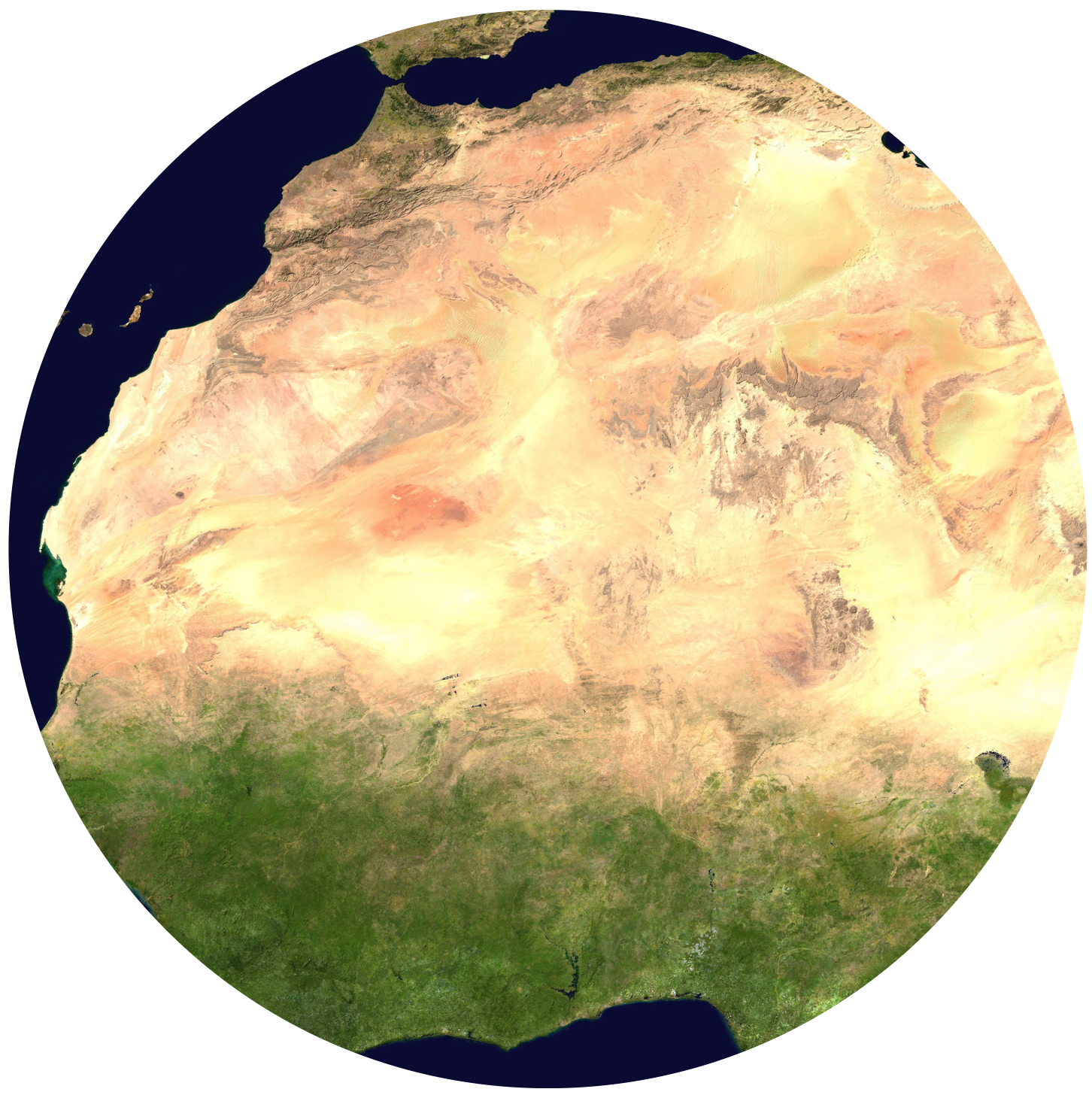Other countries efforts as international mediators in regional disputes have been praised in the cases of Morocco and Egypt, while upcoming elections cloud the forecasts in Mauritania and Tunisia. These, along with intermittent reports of human rights violations across the region, continue to suggest a tumultuous regional outlook for the foreseeable future.
Algeria
Abdelaziz Bouteflika, President of Algeria since 1999, dramatically resigned from office following weeks of unprecedented public protests and the loss of support of key establishment allies in the military and politics (Le Soir)[1]. Following this news, Abdelkader Bensalah, the President of Algeria’s upper-political chamber, the Council of the Nation, has become acting-President to lead a transitional period that will last 90 days (Le Monde)[2].
Despite this development, street protests in Algeria have continued (RFI)[3] and there has been widespread skepticism that the resignation was in fact a façade to mask a non-violent coup d’état by powerful figures in Algeria’s establishment, known as “Le Pouvoir”, and that change in Algeria’s politics is instead superficial (Jeune Afrique)[4].
In other news, prosecutions of Algerian businessmen, with links to the regime, have begun due to allegations of embezzlement (RFI)[5].
Egypt
Egypt has been praised by the UN for playing a key role in avoiding “dramatic” escalation in the recent tensions between Israel and Gaza (UN News)[6].
Following a dispute with French experts and aviation authorities, Egypt has reiterated that only Egyptian public prosecutors are assigned to investigate the high-profile 2016 crash of EgyptAir flight MS804 (Egypt Today)[7].
Additionally, the NGO, Human Rights Watch, has issued a plea to Egyptian authorities to reveal the whereabouts of individuals recently deported from Malaysia and Turkey under suspicion of posing significant security threats (Human Rights Watch)[8].
Libya
Following a recent military push in Libya’s south, forces loyal to Khalifa Haftar have advanced to the west of Libya and are reportedly in clashes with rival militias south of Tripoli (Euronews)[9]. For his part, Haftar, who has not committed to attending the upcoming UN-backed National Conference, has declared to end Libya’s crisis in the next two weeks (The Libyan Express)[10]. This statement and the maneuvers of Haftar’s forces in the west of Libya have alarmed both the Tripoli-based Government of National Accord, and the UN, with the UN Secretary-General publicly condemning the escalation (The Libya Observer)[11].
Despite this rise in tension, Libya has this week hosted its first municipal elections for five years in some municipalities (Reuters)[12].
The African Union has also announced a conference in July aimed at reconciliation between Libya’s political parties (The Libyan Express)[13].
Mauritania
In his first speech since announcing his candidacy for the upcoming Presidential elections, former Prime Minister Sidi Mohamed Boubacar said that Mauritania can either persist as an authoritarian state or move towards democracy and rule of law (Sahara Media)[14]. Meanwhile, another former Prime Minister, Moulaye Ould Mohamed Laghdaf ruled himself from running in the race, in order to preserve the Presidential majority (L’Authentique)[15].
The TAWASSOUL National Women’s Council called upon the army to be neutral in the elections (Cridem)[16]. In addition, there were calls for an opposition boycott due to concerns regarding the revision of the composition of the National and Independent Electoral Commission (L’Authentique)[17].
In other news, dozens of human rights activists observed a sit-in in Nouakchott civil prison demanding the immediate release of two bloggers jailed for defamation (Sahara Media)[18].
Morocco
In a boost to the UN-led efforts, the Secretary-General to the UN, Antonio Guterres, commented in his first report to the Security Council regarding the Western Sahara issue that he had been assured by Moussa Faki, President of the Commission of the African Union, that the African Union fully supports the UN-led political process (Le360)[19].
In addition, the Council of Local and Regional Authorities of the Council of Europe has granted Morocco the status of “Partner for Local Democracy” (Le360)[20].
Morocco has also adopted a draft decree on the fight against violence towards women (2M)[21].
Tunisia
Nidaa Tounes has announced that Beji Caid Essebsi is its candidate for the upcoming Presidential elections (Business News)[22]. In the national Parliament, the audition of the head of government was postponed due to a Parliamentary sit-in protest (Espace Manager)[23].
There has been continued strikes and blocked roads across Tunisia to protest the latest increases in fuel prices (Kapitalis)[24]. Meanwhile, NGOs have denounced restrictions to freedom of movement by security services, implemented as part of measures to “fight” terrorism (L’Orient le Jour)[25].

